Tire Buying Guides
Free shipping
Best price guarantee
Special pricing
Financing with Resolve
Easy returns
Free shipping
Best price guarantee
Special pricing
Financing with Resolve
Easy returns
Tire Buying Guides
Choosing the right tires for your vehicle ranks among the most important safety decisions you'll make as a driver. Your tires serve as the only connection between your car and the road — they determine how well you stop, turn, and maintain control in various weather conditions.
The tire industry has evolved dramatically over the past decades to meet diverse driving needs. Modern tire technology now offers specialized solutions for everything from daily commuting to extreme off-road adventures, with each type engineered to excel in specific conditions.
Understanding the different tire types available today empowers you to make informed decisions that enhance both safety and performance. Whether you drive through snowy winters, scorching summers, or need year-round versatility, knowing your options helps ensure you select tires that match your driving habits and local climate.
Tire types represent specialized designs created to meet specific driving needs and conditions through carefully engineered combinations of materials and construction methods. Each category features unique tread patterns, rubber compounds, and internal structures that determine how the tire performs in various situations. The differences between tire types go far beyond their appearance — they fundamentally affect how your vehicle handles, stops, and maintains traction.
Modern tire manufacturing involves sophisticated chemistry and engineering to create products optimized for particular uses. Summer tires, for instance, use rubber compounds that remain pliable in hot conditions while providing maximum grip on dry pavement. Winter tires employ completely different rubber formulations that stay flexible when temperatures plummet below freezing. These chemical differences explain why using the wrong tire type for your conditions can compromise both safety and performance.
The variety of tire types available reflects the diverse needs of today's drivers. Someone commuting daily on highways has vastly different requirements than an off-road enthusiast tackling rocky trails every weekend. Similarly, a performance car owner seeking precise handling at high speeds needs different tires than a family hauling heavy loads in their pickup truck. This specialization ensures every driver can find tires engineered specifically for their vehicle type, local weather patterns, and individual driving style — making the selection process both more complex and more rewarding when you find the perfect match.
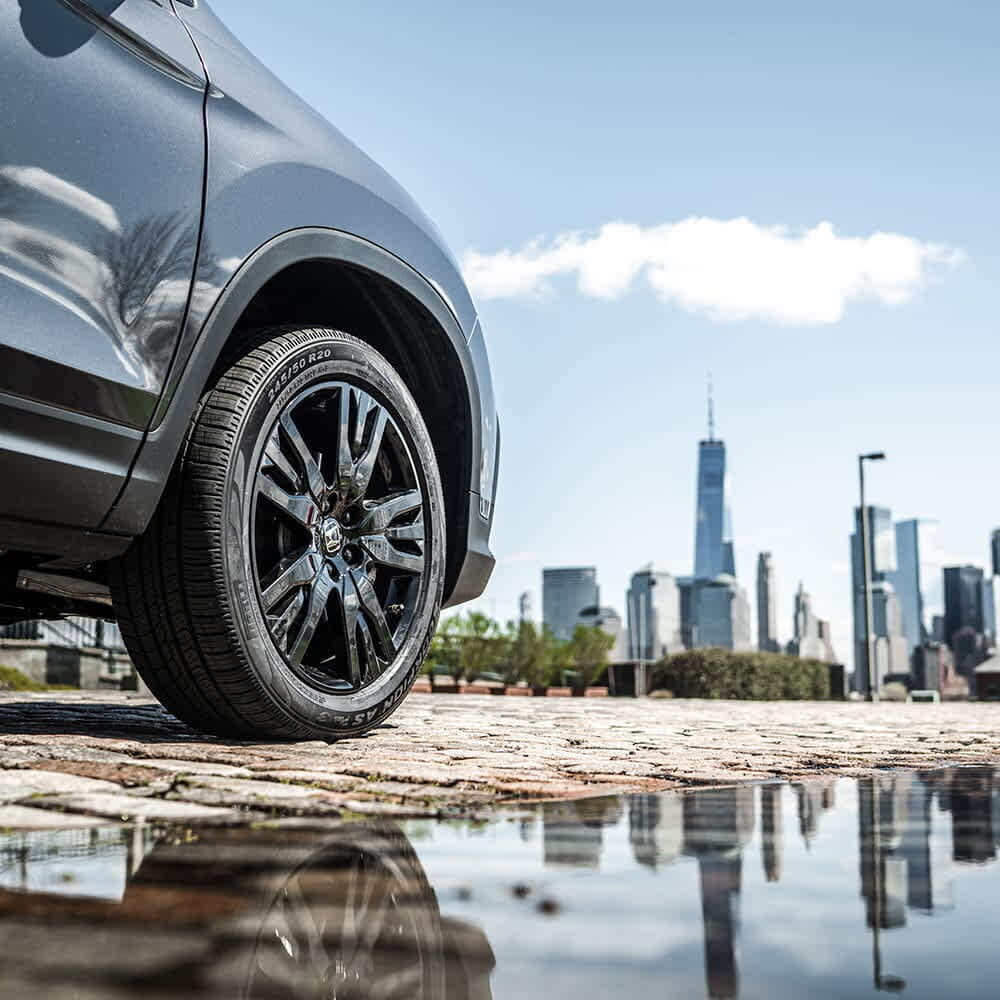
All-season tires are designed to perform well in a variety of driving conditions throughout the year. They feature a tread pattern that balances performance, offering reliable traction on dry roads, in the rain, and even in light snow. This versatility makes them a popular choice among drivers who prefer not to switch tires with the seasons.
Their convenience and capability to handle moderate weather changes make them ideal for those seeking minimal maintenance. While not specialized for extreme conditions, all-season tires provide a dependable solution for everyday drivers who value practicality and cost efficiency.
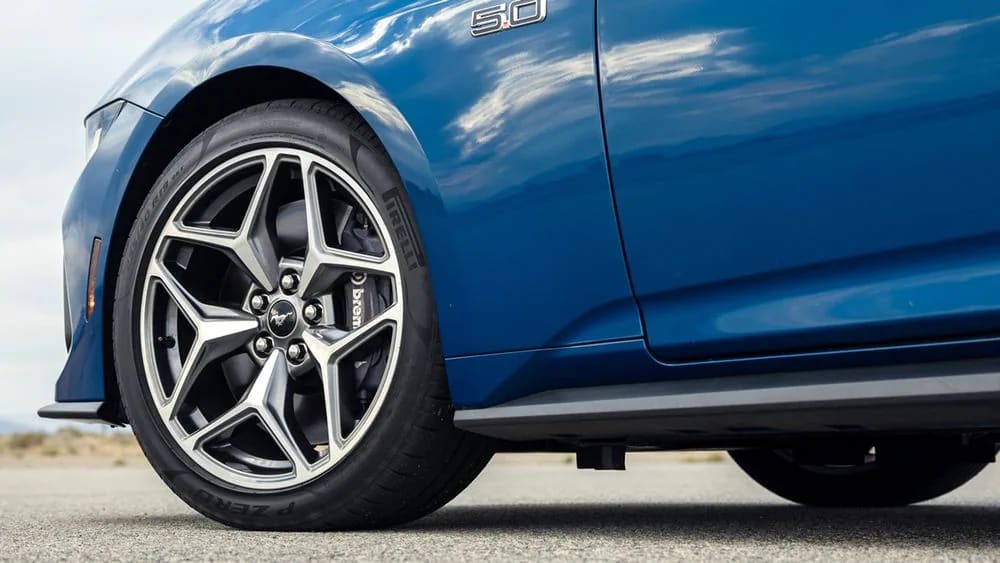
Summer tires, also known as ultra-high-performance summer tires, are crafted specifically for optimal performance in warm conditions. They use a unique rubber compound that grips well on hot surfaces, offering exceptional handling and braking on both dry and wet roads. This design maximizes road contact, providing stability and responsiveness for drivers who enjoy a dynamic driving experience.
However, these tires are not suitable for cold weather, as their rubber hardens in lower temperatures, reducing their effectiveness on icy or snowy roads. They are best suited for regions with consistently warm climates where their performance benefits can be fully realized.
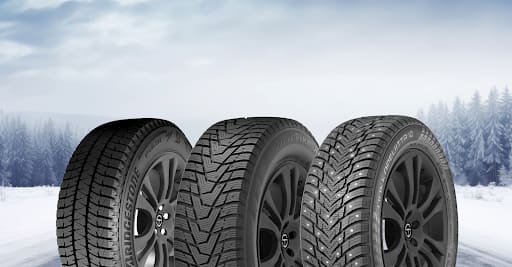
Winter tires excel in cold conditions, providing the necessary grip for safe driving on snowy and icy roads. Their deep tread patterns and adaptable rubber compounds maintain flexibility in freezing temperatures, ensuring traction when conditions are at their worst. Look for the three-peak mountain snowflake symbol (3PMSF) to identify tires approved for severe winter weather.
These tires are indispensable for drivers facing harsh winters, but should be replaced when warmer weather returns to maintain their effectiveness and longevity.
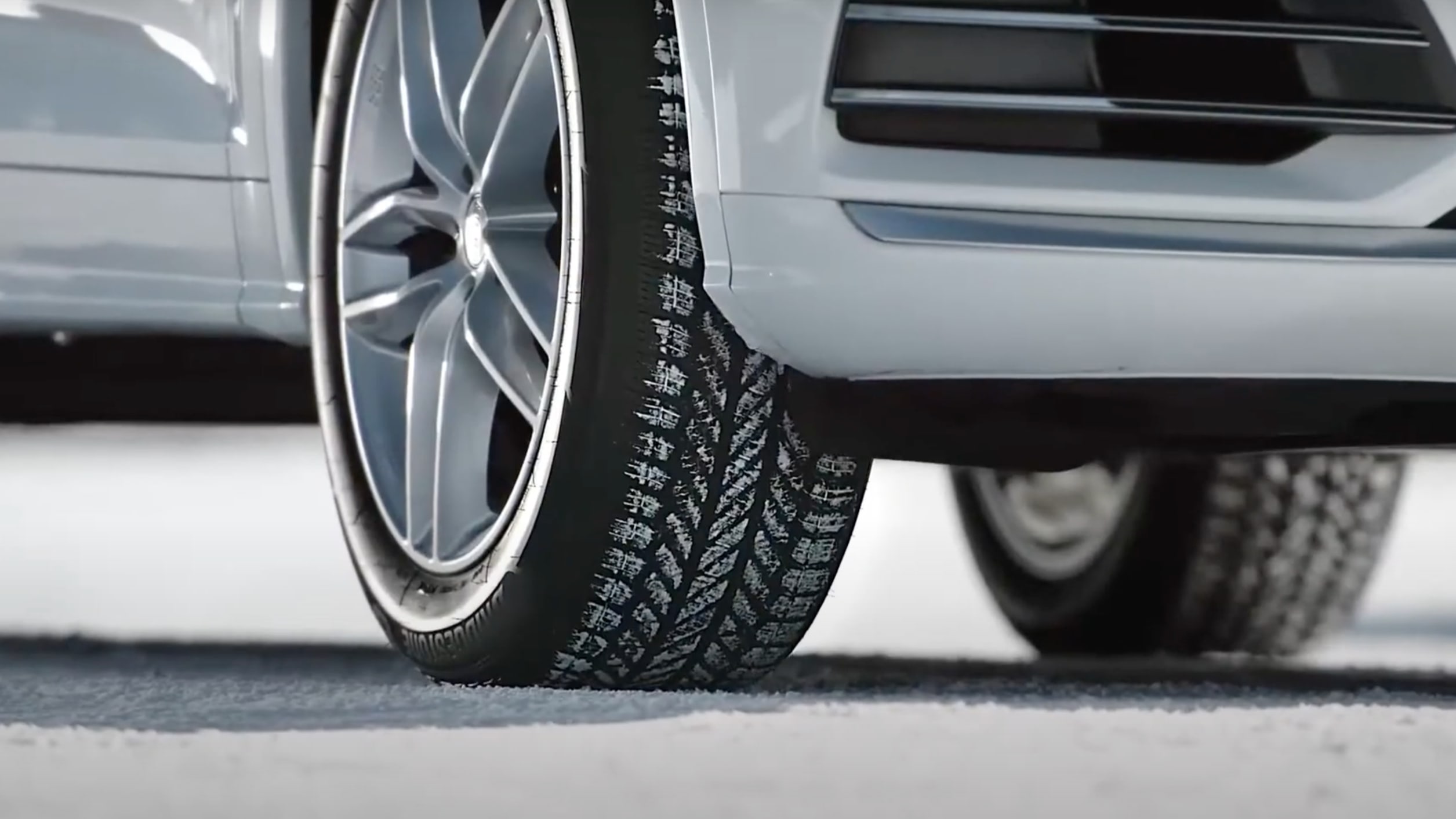
Bridging the gap between seasonal extremes, all-weather tires offer a year-round solution for those facing unpredictable weather. They carry the 3PMSF symbol, confirming their capability in severe snow conditions, while also performing well in summer temperatures. This makes them suitable for drivers who encounter a variety of climates without the need for frequent tire changes.
While not as specialized as summer or winter tires in extreme conditions, all-weather tires provide a balanced performance for those in regions with fluctuating weather patterns. Their adaptability ensures dependable traction and handling throughout the year.
Performance tires are crafted for drivers who prioritize agility and speed. They incorporate advanced rubber formulations that enhance traction, allowing for confident control even in dynamic driving scenarios. Offered in several variations, performance tires cater to distinct performance preferences: touring, high-performance, and ultra-high-performance.
Performance tires significantly improve a vehicle's handling characteristics, offering an exhilarating driving experience for those who demand enhanced responsiveness from their vehicles.
Tires for light trucks and SUVs are engineered to manage the additional weight and load demands of larger vehicles. These tires feature robust construction to support towing and heavy-duty applications, ensuring reliable performance across various conditions.
Each tire type within this category suits different driving conditions and preferences, ensuring that truck and SUV drivers can equip their vehicles for optimal performance and safety. With their durable designs and specialized features, these tires are essential for those who require more from their vehicles than just everyday driving.
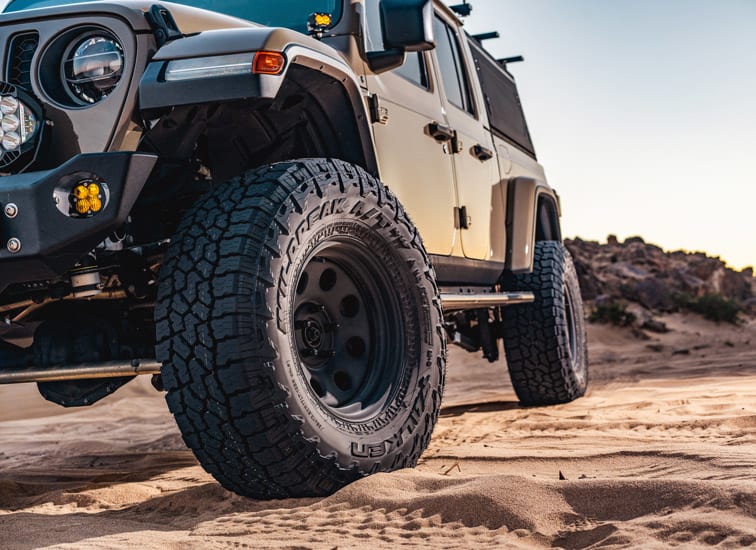
All-terrain tires are crafted for versatility, making them suitable for drivers who frequently transition between city roads and rugged environments. These tires feature intricate tread designs that strike a balance between smooth highway travel and dependable off-road traction. The robust tread patterns allow for secure navigation on surfaces such as gravel, sand, and light mud.
Drivers benefit from the adaptability and durability of all-terrain tires, which provide stable handling across diverse conditions. This makes them an ideal choice for those who seek a tire capable of delivering reliable performance on both paved routes and adventurous trails, ensuring comfort without compromising grip.
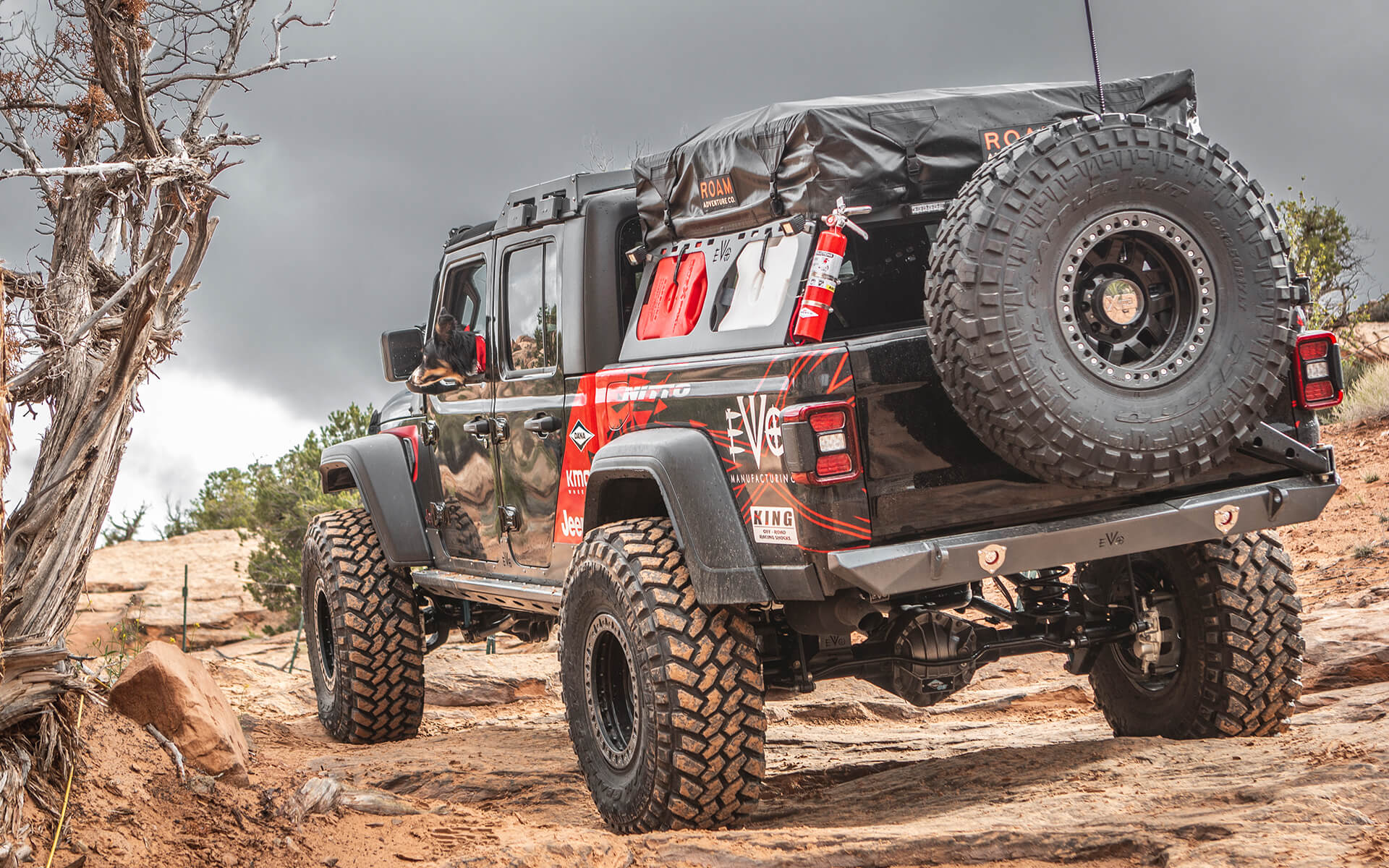
Mud-terrain tires are engineered for challenging off-road adventures, offering exceptional traction in rugged conditions. Their tread design includes deep, widely spaced blocks that efficiently clear away mud and debris, enhancing grip on uneven and loose terrains. These tires are built to withstand the rigors of off-road driving, providing durability and control in severe conditions.
While they excel off-road, their construction can lead to increased noise on paved surfaces, and they tend to wear more rapidly on smooth roads. Despite this, mud-terrain tires are essential for drivers who require robust performance in demanding landscapes, delivering the tenacity needed to tackle the toughest trails.

Highway tires prioritize comfort and efficiency for vehicles primarily driven on paved roads. Their design features streamlined tread patterns that enhance fuel economy while minimizing road noise. These tires offer a smooth and stable ride, making them ideal for long-distance travel where consistent performance and comfort are key.
For drivers who rarely venture off paved routes, highway tires provide dependable traction and a quiet driving experience. Their focus on efficiency and comfort makes them a practical choice for daily commuters and those embarking on road trips, ensuring a refined ride quality across extensive journeys.
Tire features and ratings play a critical role in determining how a tire performs across different driving scenarios. These specifications are essential for choosing tires that align with a vehicle’s requirements and a driver’s expectations. Gaining knowledge of these elements can lead to better-informed decisions when selecting tires.
The load index indicates the maximum weight each tire can support when inflated to its recommended pressure. This index is crucial for ensuring the tire can manage the vehicle's load without compromising safety or handling. Selecting tires with a load index that aligns with the vehicle manufacturer's guidelines helps prevent issues like premature tread wear and ensures the vehicle remains stable, particularly when carrying heavy loads or towing.
Speed ratings provide a guide to the maximum speed a tire can safely sustain. These ratings use letters to denote speed capability, ranging from L for up to 75 mph, to Y for speeds as high as 186 mph. Ensuring that a tire's speed rating matches or surpasses the vehicle's potential speed safeguards tire performance and integrity during high-speed travel. Tires with suitable speed ratings can withstand the heat and stress of fast driving, maintaining safety and stability.
Tread patterns significantly impact a tire’s grip, noise levels, and longevity. Symmetrical tread patterns are designed for a smoother, quieter ride with even wear, making them ideal for regular driving. Asymmetrical patterns enhance handling and grip, particularly during cornering, by employing varied tread designs on each side of the tire. Directional tread patterns, featuring a distinct V-shape, are effective at dispersing water, minimizing the risk of hydroplaning on wet surfaces. Each pattern fulfills specific performance needs, allowing drivers to choose tires that best fit their driving conditions and style.
Run-flat tires provide the security of continuing your journey even when a puncture occurs, thanks to their sturdy construction. They incorporate robust sidewalls or internal supports, which allow the vehicle to travel a limited distance without air, typically up to 50 miles at speeds not exceeding 50 mph. This feature eliminates the immediate need to stop and change a tire on the roadside.
By removing the need for a spare tire, run-flat tires offer a practical advantage, freeing up trunk space and reducing vehicle weight. However, once compromised, these tires cannot undergo repairs and must be replaced, which drivers should consider when evaluating overall costs and convenience.
Tailored for high-performance racing competition, track tires are crafted to offer maximum road grip. Their minimal tread design optimizes contact with the track, enhancing traction and control during high-speed maneuvers. These tires are made from specialized compounds that withstand the extreme conditions of racing, ensuring stability and precision for competitive driving.
Despite their advantages on the track, these tires are not intended for street use, especially on wet surfaces. Their slick design can lead to hydroplaning, and they wear quickly under normal driving conditions. They are best reserved for controlled racing environments, where their performance features can be fully utilized.
Spare tires serve as a vital contingency for unexpected flats, available as full-size or compact options. Full-size spares replicate the performance and dimensions of regular tires, allowing for seamless integration when needed, without affecting handling or ride quality.
Compact spares, in contrast, are designed to be lightweight and space-efficient, suitable for short distances up to 50 miles at a maximum speed of 50 mph. They act as an interim solution, meant only to get you to a repair shop. Choosing the right spare ensures that drivers can handle flats with minimal inconvenience, providing peace of mind on the road.
Start by analyzing the typical weather patterns in your region to find the ideal tires for your vehicle. Areas with frequent rain may require tires with superior wet traction to reduce hydroplaning risks, while desert climates might benefit from heat-resistant compounds that withstand high temperatures. For regions with unpredictable weather shifts, all-weather tires can offer a reliable solution, eliminating the need for seasonal changes and providing consistent performance across varied conditions.
Identifying your driving habits is essential for selecting a tire that suits your lifestyle. If you value a smooth and quiet ride, prioritize tires that enhance comfort and reduce road noise, ideal for daily commuting. For those who enjoy weekend adventures off the beaten path, all-terrain tires can provide the necessary traction and durability. Aligning tire characteristics with your driving preferences ensures a satisfying and safe driving experience, whether on highways or rugged trails.
Choosing tires that complement your vehicle involves more than just size—consider factors like load capacity and power delivery. For trucks and SUVs, tires with reinforced sidewalls and higher load indices provide the stability needed for towing. Ensure that the speed rating matches your vehicle's capabilities to maintain safety and performance at varying speeds. Tailoring tires to your vehicle's specifications guarantees optimal operation and longevity.
Evaluate the long-term value of your tire investment by considering both upfront costs and ongoing benefits. Tires with longer tread life may offer better overall value, even if the initial price is higher. Consider how different tires can impact fuel efficiency, as tires designed for lower rolling resistance can lead to savings over time. By factoring in warranty options and potential road hazard protection, you can make a well-rounded choice that offers peace of mind and financial prudence.
Understanding the different tire types available empowers you to make the best choice for your driving needs, whether you face snowy winters, blazing summers, or need reliable year-round performance. The right tires transform your driving experience, enhancing safety, comfort, and vehicle performance in ways you'll notice every time you get behind the wheel. When you're ready to put this knowledge into action, we make it easy to shop for tires online and find the best deals that match your specific requirements and budget.
When it comes to long wear, tires are a “you get what you pay for” proposition. It’s not unusual to see all-season passenger car tires that are covered by a treadwear warranty of anywhere from 60 to 90,000 miles, but then again wear will also depend on things like your driving style, your vehicle and whether you are diligent about tire maintenance such as tire rotation, proper inflation, wheel alignment, inspections, and so on.
As a general rule, premium all-season and touring tires are the ones that will have the most attention paid to keeping road noise to a minimum. Again, this is often dependent on the type of tire you can afford. Keeping road noise low is a science to itself; the tread design, air cavity, and casing all figure into the acoustics of highway noise. Some tires are computer-tuned so that frequencies actually cancel each other out, and many also prevent the resonance that can allow the tire’s air cavity to set up vibrations that translate as noise.
Search By